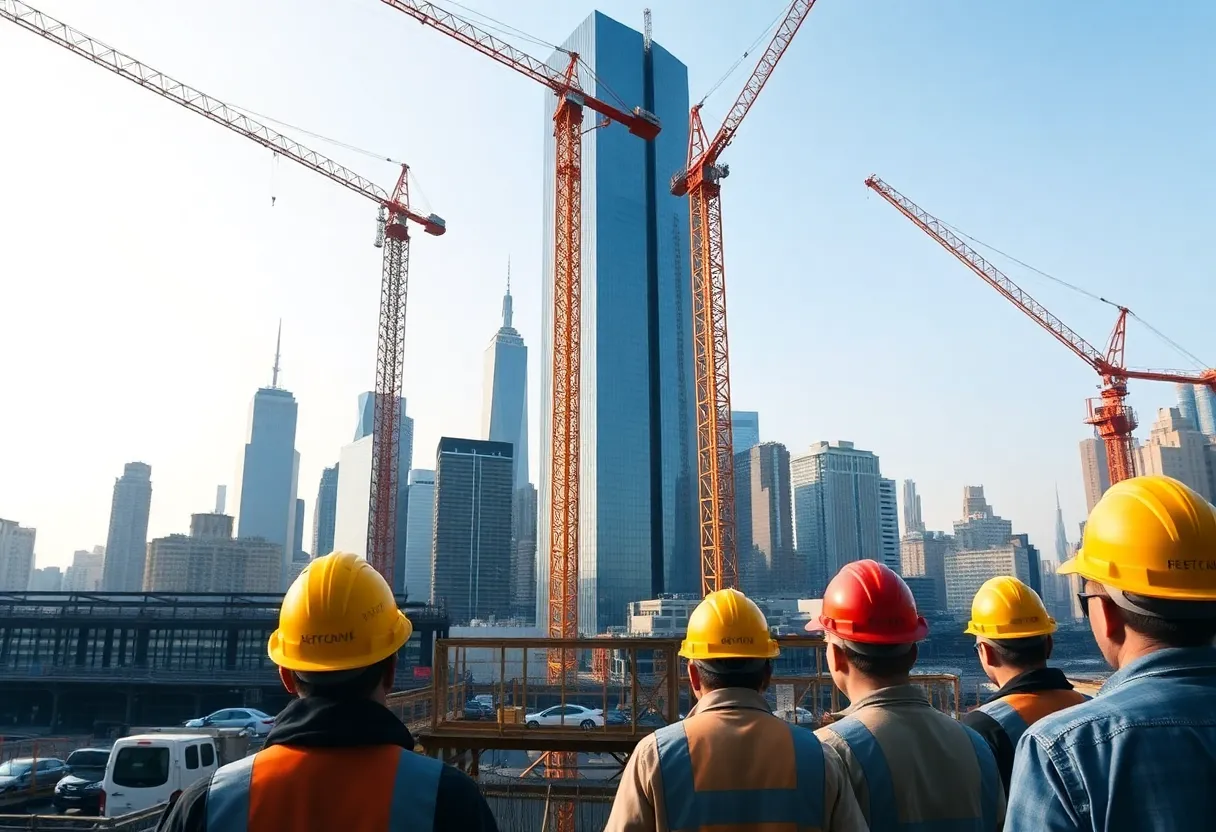News Summary
A new law effective December 30, 2024, mandates that all contractors and subcontractors in New York register with the NYSDOL before bidding on public and private projects receiving public funds. This law aims to enhance compliance with labor standards and ensure fair practices in the construction industry. Registration requirements include comprehensive documentation and a registration fee. Non-compliance may result in severe penalties. Recent legislative trends signal further oversight in construction, addressing issues such as retainage limitations and liability for worker falls.
New Registration Law Set to Transform New York Construction Landscape
Effective December 30, 2024, a sweeping new law in New York will overhaul the *bidding process* for contractors and subcontractors, particularly impacting public and certain privately-funded projects. Under the new regulations, all contractors and subcontractors must register with the New York State Department of Labor (NYSDOL) before embarking on any work or bidding for these projects.
Important Registration Requirements
This initiative has been implemented to ensure businesses comply with *labor standards* while promoting *fair practices* across New York’s vibrant construction sector. The registration requirement will pertain not only to *public projects* but also to private ventures that receive public subsidies. This includes promising areas such as *renewable energy systems*, *broadband expansions*, and various *climate-related projects*.
For projects where public funds constitute over 30% of the overall cost and total project expenditures exceed $5 million, full registration will be mandatory. Contractors will be required to provide comprehensive information during registration, detailing their business structure, including officials, workers’ compensation insurance, *disability insurance*, records of prior labor law violations, and details regarding any apprenticeships undertaken.
Consequences of Non-compliance
Any contractors or subcontractors who fail to secure registration before bidding or starting work on any covered project after the stipulated date will face significant repercussions. This could entail substantial fines or even stop work orders to halt ongoing projects. Penalties for non-compliance could escalate to up to $1,000 per infraction, with the risk of interruptions causing unwelcome project delays.
Enhancing Contractor Credibility
Being a registered contractor not only clears the path to bidding on public works projects but also enhances credibility among consumers. Registered contractors ensure that they follow essential *labor laws* and maintain safety standards, while project owners must validate the registration status of all involved parties.
The registration fee is set at $200, with a discounted fee of $100 for certified *Minority or Woman Owned Business Enterprises (MWBEs)*. Upon successful completion of the registration, contractors will receive a *two-year valid Certificate of Registration*, which can be renewed—though renewal applications must be submitted 90 days before the certificate’s expiration.
Recent Legislative Trends
This registration initiative comes on the heels of broader legislative trends aimed at reinforcing compliance and oversight in the construction industry. Additionally, a new law limiting an owner’s ability to withhold retainage on private projects to 5% has been signed into law, effective November 17, 2023. This law targets contracts exceeding $150,000, mandating that retainage amounts be released within 30 days following the final approval of work. Failing to comply might result in interest charges of 1% per month from the due date.
In another heated topic, construction firms and property owners face scrutiny under the Scaffold Law, which continues to hold them financially responsible for worker falls—a directive that has sparked criticism for inflating construction expenses.
Legal Troubles Afoot
Adding to the construction climate in New York are recent lawsuits initiated by Ionian RE, alleging a *fraudulent scheme* involving staged workplace accidents, contributing to millions in *workers’ compensation payments* and liability settlements. This case targets several law firms and individuals purportedly connected to this overarching fraudulent activity, amidst reports that expenses related to these claims have surged despite a decline in actual workplace injuries.
As the construction scene braces for these pivotal shifts, contractors and project owners will need to stay vigilant and ensure compliance with newly established requirements to prevent financial and operational setbacks come late 2024.
Deeper Dive: News & Info About This Topic
HERE Resources
Additional Resources
- Hancock Law: New Registration Requirements for Contractors
- Wikipedia: Construction Industry
- New York Law Journal: Court Imposes Strict Construction
- Google Search: Construction Law
- Insurance Journal: Construction News
- Google Scholar: Construction Safety
- National Law Review: New York Amends Prompt Payment Act
- Encyclopedia Britannica: Construction Industry
- D Magazine: RICO Case in Healthcare
- Google News: Construction News





